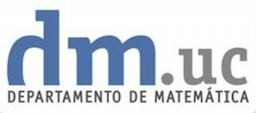The MSc in Quantitative Methods in Finance Program intends to provide essential knowledge in Mathematics related to problems that include pricing of financial derivatives, risk management, treatment of financial series and portfolio selection.
In particular, it intends to adequately combine these skills with the study of the mechanics of financial markets. It emphasizes the role of stochastic calculus and differential equations in the pricing of hedging products and in the development of models of temporal structure, such as the optimization of efficient portfolio management. On the other hand, it focuses on probabilities and stochastic processes relevant to risk management, analysis of financial series and prediction of market behavior.
The interdisciplinary nature of this MSc program will thus provide the acquisition of both theoretical and practical competences in the areas of Mathematics, Economics and Finance that meet the different perspectives of interpretation, analysis and decision that can occur in the Financial Markets.
The intake for this master program is biannual. The next application will be for the 2019/2020 edition.
Professional Goals
The interdisciplinary nature of this MSc program provides both theoretical and practical skills in Mathematics, Economics and Finance to meet the different perspectives of interpretation, analysis and decision making that can occur in Financial Markets. This degree trains:
- Quantitative Analysts with solid knowledge in the aforementioned areas which are able to work in the finance departments of investment banks, consulting and audit firms, investment funds and pensions enterprises, stock exchanges and insurance companies;
- Researchers with the potential to innovate and create mathematical problems related to economy and finance.
The MSc program has the support of researchers and R&D departments of BNP Paribas.
Program
This Master's program lasts 3 academic semesters. The first semester is composed by 4 compulsory courses and 1 optional course adjusted to the profile of the candidates. The second semester is structured in 5 compulsory courses and 1 free optional course. The third semester is dedicated, in its entirety, to a project work. The course totals 90 units of ECTS. The courses have 4 hours of weekly workload.
The classes will preferably take place in the afternoon, starting at 15-16 p.m., in order to take in consideration the possible professional affairs of the candidates. Master's degrees are biannual.
The study programme of the MSc in Quantitative Methods in Finance Program is organized in three semesters:
1st semester
- Optimization Methods in Finance (6 ECTS)
- Stochastic Processes and Calculus (6 ECTS)
- Time Series (6 ECTS)
- Risk and Financial Economics (6 ECTS)
- Complements of Analysis and Programming (option for students with graduations in Economics/Management, 6 ECTS)
- Intermediate Microeconomics (option for students with graduations in Mathematics/Physics/Engineering, 6 ECTS)
2nd semester
- Derivative Modelling and Risk Management (6 ECTS)
- Time Financial Series (6 ECTS)
- Financial Derivatives (6 ECTS)
- Interest Rate Models and Credit Derivatives (3 ECTS)
- Project/Dissertation in Quantitative Methods in Finance (3 ECTS)
- Numerical Methods for Partial Differential Equations (optional, 6 ECTS)
- Risk Theory (optional, 6 ECTS)
3rd semester
- Project/Dissertation in Quantitative Methods in Finance (30 ECTS)
Admission Requirements
One of the following requirements must be met by the applicants for this Master program:
- Hold a BSc degree or legal equivalent;
- Hold a foreign academic degree after completing 1st cycle of studies organized according to the principles of the Bologna Process;
- Hold a foreign academic degree that is recognized as meeting the objectives of the Bachelor’s degree by the Scientific Council of the Faculty of Science and Technology.
A complete application includes:
- Statement of purpose;
- Copy of Identity Card;
- Curriculum vitae, in EuroPass format;
- Certificate of the academic degree, including the final classification (except present and older students of UC);
- Certificate with the detailed description of the classification of the courses taken (except present and older students of UC);
- Detailed description of the courses taken in the original academic program, in case you need creditation to the master program you are applying.
Program Coordination
DMUC
FEUC
Contacts
This master program is a FCTUC program.
Departament of Mathematics of FCTUC or School of Advanced Studies - FEUC.

